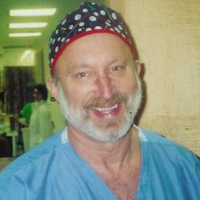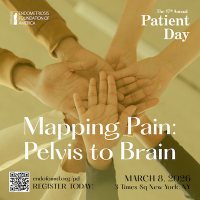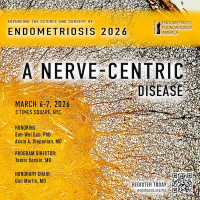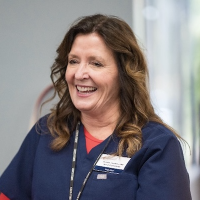
My problems started when I was 17 and rushed to the emergency room. Doctors initially thought I had appendicitis; instead, they found an enlarged cyst on my ovary. This was also around the time I was missing my periods and experiencing constant discomfort in the pelvic area, though nobody could diagnose the reasons.
It wasn’t until I was 20 that I was diagnosed with polycystic ovary syndrome (PCOS). Finally, my symptoms appeared to be making some sense. But I was being put through the wringer by doctors with their various procedures and “remedies.” I hadn’t had a period for about a year and was told it was due to the PCOS. I was given multiple seven-day rounds of Provera that was supposed to jump-start my body into having a period. It never happened. I had a loop electrosurgical excision procedure and a cone procedure the same year to remove cancerous cells and tissue from my cervix. They also tested me for HPV, which came back negative. I was assured after these procedures that I would be in a “recovery” state, that my hormones would return to a “normal” level, and I would possibly start having regular periods again.
Again, they were wrong.
I saw a reproductive endocrinologist to try to get to the bottom of these issues. A benign tumor was found on my left ovary. I had a biopsy done in my uterus. I also had a laparoscopy, which is when my gynecologist said that my symptoms were “consistent with endometriosis.” I continued to get checked three times a year with paps, ultrasounds, and bloodwork, but I still experienced many of the same symptoms. Sometimes I felt so awful that I contemplated whether I could even drive myself to the emergency room.
Fast forward to today. At 31 years old, I still have not had a period. It’s been 11 years. I am always in excruciating pain in my pelvic (ovary) area, but my gynecologist still doesn’t know why. They make me feel as if I’m crying wolf every time I call, so I’ve just stopped going in and am dealing with it on my own. Sometimes my past medical history seems like a blur because of all the back and forth to doctors and the many procedures I have had. I see a different gynecologist now. When I bring up endometriosis she says she feels that I was “misdiagnosed,” even though during the seven years before seeing her I was told it was endo. She says this despite never ordering any other testing. When I ask what can be done, she says: “Your insurance probably wouldn't cover it if they feel it’s elective.”
It’s extremely frustrating to go to the gynecologist only to be told that what I have is “consistent with PCOS” and that it’s “normal” and I am overreacting. I understand how my insulin and hormone levels work and how those are consistent with PCOS, but the amount of pain I am in is concerning, especially when I am getting two different diagnoses from different doctors.
Another concern of mine is that even though I have made major dietary changes (vegetarian and keto), and I am strict about doing intense workouts four days a week at the recommendation of my endocrinologist, I have not had much improvement. I have had some weight loss (finally!), but the symptoms have not alleviated. As far as medications, I was on Metformin for the PCOS, but I have not been back on it after having many gastrointestinal issues from it. I have an IUD to help regulate my hormones, but I still feel like they are jumping all over the place.
There is nothing worse than feeling like you have nowhere to go when you are sick and the professionals who are supposed to help you heal tell you to “just deal with it” because there isn’t a cure. It’s incredibly frustrating to never know when the pain or symptoms will flare up. They can come at any time and last for various periods.
Editor's note: Would you like to contribute to EndoStories? Click here to learn how to submit your work.
*Patient stories submitted to Endofound.org are the views of the patient and not necessarily those of the foundation.









